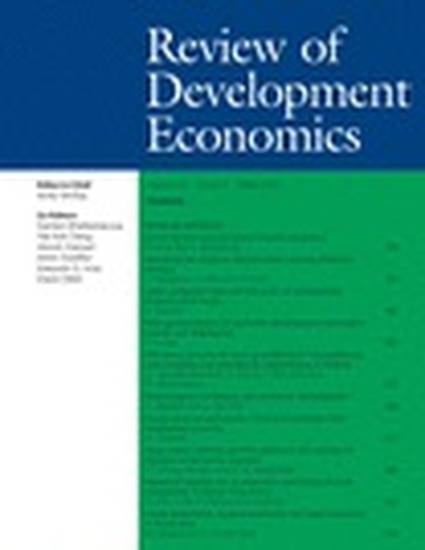
Article
The First and Second Stage Pass-through of Exchange Rates: A Developing Country Perspective
Review of Development Economics
(2014)
Abstract
This paper investigates the validity of the conventional wisdom that, unlike in developed countries, exchange rate pass-through (ERPT) should be ‘complete’ for developing economies. To test this hypothesis, we construct new variables as well as original data sets, which are not readily available in the literature, and employ an alternative error correction model technique for a typical small open developing economy—Bangladesh. The transmission of exchange rate movements to import prices is found to be ‘complete’; however, the ‘second stage pass-through’ is ‘partial’ both in the short and long run. The response of traded goods prices to exchange rate shocks is found to be significant and larger in the long run compared with the short run. Trade liberalization is also a significant phenomenon for ERPT. The analysis has wider applicability to other small open economies.
Keywords
- Exchange rate pass-through,
- developing country
Disciplines
Publication Date
Summer July 10, 2014
Publisher Statement
John Wiley & Sons Ltd.
Citation Information
M. Nusrate Aziz, Nick Horsewood and Somnath Sen. "The First and Second Stage Pass-through of Exchange Rates: A Developing Country Perspective" Review of Development Economics Vol. 18 Iss. 3 (2014) Available at: http://works.bepress.com/nusrate_aziz/16/
